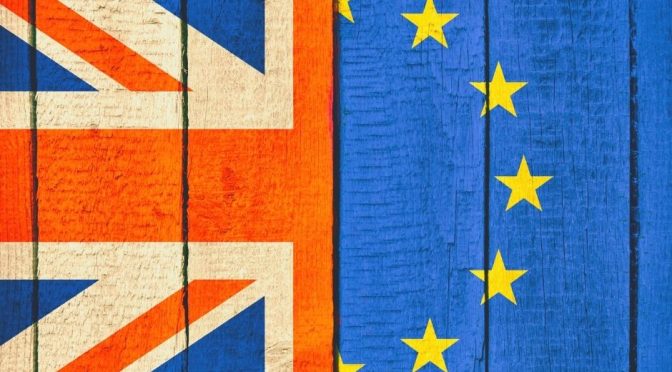
The Brexit transition period comes to an end on 31 December this year. After this date, the UK will no longer be in the EU Single Market or Customs Union and free movement will stop.
This will have a profound impact on many businesses, especially those that trade with European customers or suppliers.
There is still some uncertainty as to whether the UK or EU will agree a tariff free trade agreement. Either way UK business will face additional documentation for importing and exporting goods to the EU from 1 January 2021.
Businesses must have the necessary steps in place to continue trading with their EU customers and suppliers once the transition period ends.
This may include, but is not limited to:
- applying for an EORI number
- preparing to pay or account for VAT on imported goods
- considering commercial arrangements and terms of trade
- determining the customs value of goods
- considering how customs declarations to HMRC systems will be made and the use of a customs intermediary.
There are also other business matters to consider such as data protection, intellectual property and replacing existing agreements with EU suppliers and customers.
We have prepared a Brexit checklist to help review your preparedness and the Government information to prepare actions for 1 January 2021.
Also, visit https://www.gov.uk/transition for further information. This outlines actions to take now if you are:
- importing goods into the UK
- exporting goods from the UK
- travelling to the EU
- living and working in the EU
- staying in the UK if you’re an EU citizen
Here are some of the areas you should consider, particularly if you import or export goods to the EU and haven’t had the need to complete the various forms before:
- If you move goods to or from the EU register (unless you already have) for an Economic Operator Registration and Identification (EORI) number – https://www.gov.uk/eori
- Consider an agent to help with completing import/export forms –
www.export.org.uk or DIY the forms (see below). - If you export goods see the step by step guide here: https://www.gov.uk/prepareto-export-from-great-britain-from-january-2021
- Export rules are specific by sector so review “The transition period ends in December” Government website. There you can get a personalised list of actions and can subscribe for email updates: https://www.gov.uk/transition
- The VAT reporting rules for EU sales can be found here:
https://www.gov.uk/guidance/vat-how-to-report-your-eu-sales - If you import goods then see the guidance “Starting to import”:
https://www.gov.uk/starting-to-import/moving-goods-from-eu-countries - There is a step by step guide on importing here: https://www.gov.uk/prepare-toimport-to-great-britain-from-january-2021
- Guidance on paying VAT on imports can be found here:
https://www.gov.uk/guidance/vat-imports-acquisitions-and-purchases-from-abroad - Review HMRC YouTube videos on international trade here:
https://www.gov.uk/guidance/help-and-support-for-international-trade - You may choose to register for Authorised Economic Operator (AEO) status which enables “Trusted” businesses simplified customs procedures. Application does take time and is complex. See: https://www.gov.uk/guidance/authorised-economic-operator-certification
- In the event of the EU and UK not agreeing a free trade agreement, from 1 January 2021 all exports and imports to the EU will be subject to tariffs. You will need to identify where “inputs” come from and which categories of product they fall into so you can work out the tariffs that will apply. The UK Government have published trade tariffs duty and VAT rates by commodity: https://www.gov.uk/trade-tariff
- If you currently have business agreements with EU companies you may need to redraft them to cover off areas such as customs arrangements, import duties, how VAT is accounted for, definitions such as “Territory”, dispute resolution and unanticipated administration because of Brexit. Consult your solicitor for advice to avoid any potential issues sooner rather than later.
- Review all EU employees currently working in your business and ascertain whether they are applying for “Settled status” by 31 December 2020. See: Your UK employees working in the EU may need to apply for similar status, https://www.gov.uk/government/publications/eusettlement-scheme-employertoolkit
- If your business has a “.EU” domain name you should check the eligibility to hold such a domain here: https://www.gov.uk/government/publications/guidance-oneu-top-level-domain-name-registrations-in-the-event-of-a-no-deal-euexit/guidance-on-eu-top-level-domain-name-registrations-in-the-event-of-a-nodeal-eu-exit
- If you are involved in eCommerce then read the Governments EU guidance: https://www.gov.uk/government/publications/ecommerce-eu-exit-guidance
- Data Protection – you may need to comply with new license requirements and changes in regulation. The Information Commissioner’s office (ICO) will update its guidance once the outcome of the negotiations is known. See: https://ico.org.uk/for-organisations/data-protection-at-the-end-of-thetransition-period/
- Copyrights – A substantial part of UK copyright law is derived from the EU copyright framework. Because of this, there are references in UK law to the EU, the EEA, and member states. Some of these references occur in the UK’s implementation of EU cross-border copyright arrangements. These arrangements apply only within the EU and EEA and provide reciprocal protections and benefits between member states. If there is no future reciprocal UK EU deal contact your lawyer to discuss. See: https://www.gov.uk/guidance/changes-to-copyright-law-after-the-transition-period
- For Intellectual Property see: https://www.gov.uk/government/news/intellectualproperty-and-the-transition-period
- For Trademarks see: https://www.gov.uk/guidance/eu-trademark-protection-andcomparable-uk-trademarks
Here to help
Businesses are facing an extremely challenging period and while there are still a lot of variables to the end of the transition period, it is important that companies begin to prepare for all potential scenarios now.
If you’d like to know more about the impact Brexit may have on your business and how we can help, please contact our team.







